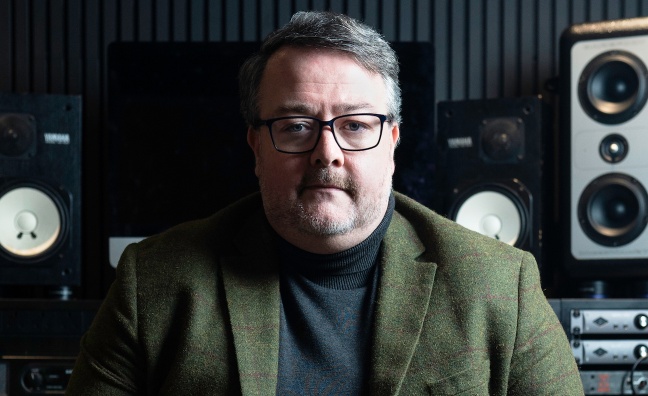2024 is a big year for house music institution Defected. As well as marking 25 years in business, the independent company is looking ahead with its Defected 2.0 manifesto.
CEO and owner Wez Saunders, who took control in August 2022, has produced the 90-page document as Defected looks to build on its achievements and outline its soul and vision.
“Sometimes, you have new people start and you don’t always get to communicate as much as you would like to within a given time frame,” said Saunders, who’s interviewed in Music Week with team members Sarah Crane and Allan Nicoll. “The manifesto is about making sure people understand what it is we stand for, what the core values of our business are, and what our vision and strategy is for the foreseeable future.”
As well as creating foundations for the next 25 years of the business, the document set out multi-faceted plans for further acquisitions and growth.
Having increased 44% in staff since the takeover, Defected is aiming for its biggest year to date. Its latest partnership has seen the launch of the first DJ rides residency with Peloton.
Set up by Simon Dunmore back in 1999, Defected’s first release was Soulsearcher’s Can’t Get Enough, which went to No.5 in the UK singles charts. By the summer of 2001, they’d had a No.1 with Roger Sanchez’s Another Chance.
From there, Defected built on their initial success, adapting to fluctuations in trends with various sub-labels, putting on club nights and launching a series of festivals in places such as Ibiza and Croatia. They weathered the pandemic by nurturing their fan communities online and by building their brand across DSPs.
They now also have a successful publishing arm, Defected Music, with songwriting credits on Beyoncé’s Renaissance album and the Elton John/Dua Lipa, PNAU-remixed hit Cold Heart.
Describing itself now as a music media group with the label at the epicentre of operations, Defected has built an online community of 11 million fans.
The company has also focused on protecting artists’ intellectual property. A partnership with The Circuit Group also adds heft to that artist-centric approach.
“One of our mantras is ‘house music all life long’,” said. Saunders, as he begins reflecting on their ethos. “People don’t just buy what we do, they buy why we do it. We know the culture and we know what we need to do to maximise the cultural impact of the brand.
“I mean no disrespect to other labels when I say this, but I can’t actually think of another label that exists to protect, and to educate around, the culture of dance music,” he continued. “I can’t think of many others that are actually considering what that culture means.
“First and foremost, I really do believe that if you do things for the right reasons then the commercial balance will follow. We’re not making decisions based on how many streams we think a record will get, or how many tickets we think we can sell. We’re making decisions by thinking, ‘Is this a great record that our community will love? Is this a great event that our community will love?’”
I really do believe that if you do things for the right reasons then the commercial balance will follow
Wez Saunders
The label’s royalty rate now has a minimum threshold of 30%. In 2022, they also revealed they would be writing off unrecouped debts for all royalty accounts prior to 2012 and will continue to scrap debts that are more than 10 years old on a rolling basis going forwards. Saunders speaks about this change as a work in progress.
“Obviously, there are huge overheads associated with us delivering what we do,” he said. “We don’t charge those costs to the artists, but we do take a larger share of the royalties at this moment in time. But when we were looking at things and finding legacy rates that were 18% to 22%… I just didn’t feel comfortable with that.
“It was actually a decision that Simon Dunmore and I made together before the acquisition, that we would change the royalty rates to 30% and write off historical balances. There aren’t many things that are unrecouped after 10 years in all honesty. But this gives us the opportunity to do something for artists who – in this modern streaming era – weren’t getting paid and now they are.”
Defected have also increased their accounting cycles from twice a year to once a quarter, meaning their artists can expect a payout once every three months as opposed to every six.
The change in accounting frequency grew out of the pandemic where the label felt the need to get cash to artists who had been without live income for nearly two years.
“It’s been well received,” said Saunders. “A lot of people have mentioned that they can see the subtle changes I’ve been trying to implement since the acquisition and I think it’s been recognised that you can’t change the world with a click of your fingers, but you can make improvements and that actions speak louder than words.”
Saunders also hopes that Defected’s actions will add force and momentum to a wider industry shift.
“I do hope we can influence the way the industry is moving,” he told Music Week. “I do think it’s important for other groups to look at this. I have noticed that there are a few labels who have done similar things after we made the changes and a couple who had done so before. I’m not saying it’s all Defected’s idea, but it’s good to see people moving in the right direction… A lot of people have said they can see what we’re trying to do and that’s probably as complimentary as I’m going to get from the industry overall.”
Subscribers can read the full interview with the Defected team here.









